- Home
- 7 Steps of Goal Setting
- How to Help with Procrastination: Use the 10 minute rule
How to help with Procrastination: USE the 10-minute Rule
How to help with procrastination by using the 10 minute rule means that you start small, stay focused, and get stuff done!
I have a confession to make about procrastinating. I left this article to the last minute to write. I intended to write it yesterday, but the old familiar procrastination excuses (I'm tired, I have other things to do, I am not in the mood, blah, blah, blah) arose.
All the excuses had an element of truth to them…but they were still just excuses.
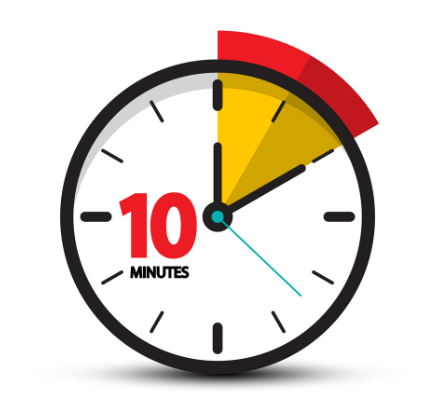 Reduce the barrier to start with the 10 minute rule
Reduce the barrier to start with the 10 minute ruleThe problem is NOT the excuses but the conclusions that arise from them.
All my excuses concluded with 'then it is better to put it off to another time.'
For example:
- "I'm feeling tired" (excuse)….then "I will wait till another day when I am more rested" (conclusion).
- "I have too much to do" (excuse) …..then "I will do the task when I have less stuff to do" (conclusion).
- "I'm not in the mood" (excuse)…then "I will wait for my moment of inspiration" (conclusion).
It was my conclusions that needed to change!
So how did I start writing this article?
I heard my familiar excuses arise and used them to signal that I was about to procrastinate.
At that very moment, I used a simple technique that pulled me out of my familiar procrastination habit and kicked my butt into gear. To do this, I asked myself one simple question:
"What needs to be done now in these ten minutes? What can I commit to for the next 10 minutes that I have been procrastinating on - and then immediately started on the task?
Now I am trying to keep my life as simple as I can. I withhold any judgements or negativity about the task and don't worry about the quality of my output.
Surely I can tolerate this commitment for only 10 minutes!
And a funny thing happened!
When I was doing what I SHOULD be doing rather than distracting myself with other stuff, I felt better. I felt better that I had given it a go, and the task was not as big and scary as I had thought!
But don't just take my word for this.
Dr Timothy Pychyl, an expert on Procrastination from Carleton University, says the problem IS NOT the excuses but the conclusions that arise from them. In his study, he carried out this exercise with his students. He found that when students made an effort to just get started on their stressful, complex, and unpleasant task - the task was not as stressful, complex, or as unpleasant as they thought!
On top of that, they felt better about themselves for having started and created momentum to keep going.
Which type of procrastinator are you? Find out here
How to help with procrastination and why the 10 minute rule works!
The mind works in mysterious ways. It can take a task that is difficult or unpleasant and build an illusion that the task is too big to start.
The 10-minute rule magnifies the simplicity of the task in front of you. It reduces the commitment barrier to start the action!
So rather than
- committing to write this whole article all I need to do was to write for 10 minutes.
- committing to run 5 miles I can commit to 10 minutes of running.
- committing to read an entire chapter I can just commit to 10 minutes.
The funny thing is that once I start I get into the flow of things and the resistance evaporates. There are a few reasons why the 10-minute rule reduces procrastination.
- It creates momentum
- It focuses on the process of starting, not the outcome or the result. In other words, it shifts the mind from what you can't control to what is within your grasp.
- It reduces the task down to small actions that are accomplishable and it builds a spiral of success.
How to help with procrastination activity: Try the 10-minute Rule Now
So what is on your mind now? What are you procrastinating on? Just the thought can be overwhelming, right?
Choose one thing that you can commit to for 10 minutes. 10 minutes to take some action, any action?
Can you hear the familiar excuses arising? For me, it is I am "I'm too tired", or "I'm not in the mood", or "I would rather do something else".
Don't discard the excuses; they have an element of truth! But decide today to change your conclusions to these excuses.
Use your excuses as a red flag, an alert, to get started for 10 minutes.
Ask yourself when the red flag goes up, "What needs to be done now in these ten minutes?" and make the 10-minute commitment.
Don't hold any judgement about the task or the quality of the work. Just start it!
What can you do in the next ten minutes that will move something forward? What's one small action that you can take right now?
Take that action. Your future self will thank you.
Share Your Tips for the 10 minute Procrastinating Challenge?
Do you have a great story about this? Share it!
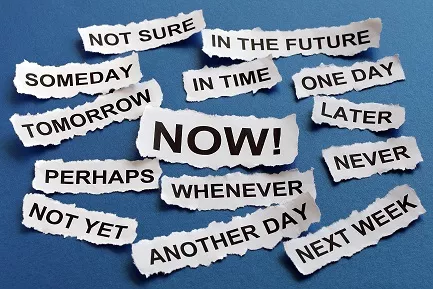

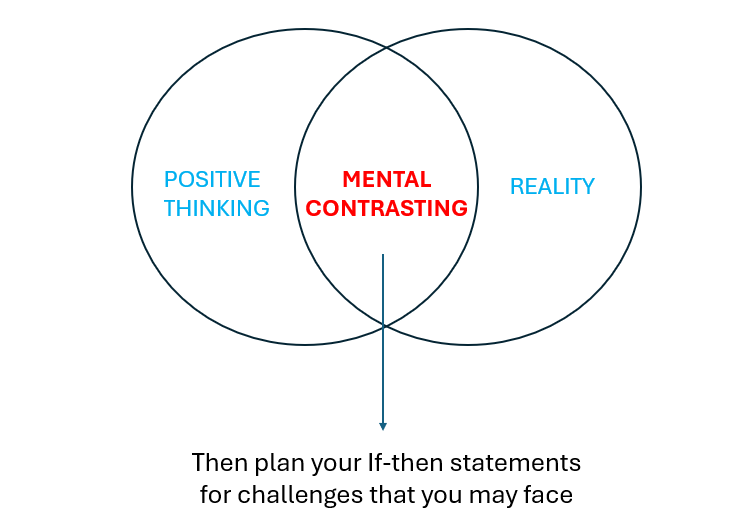


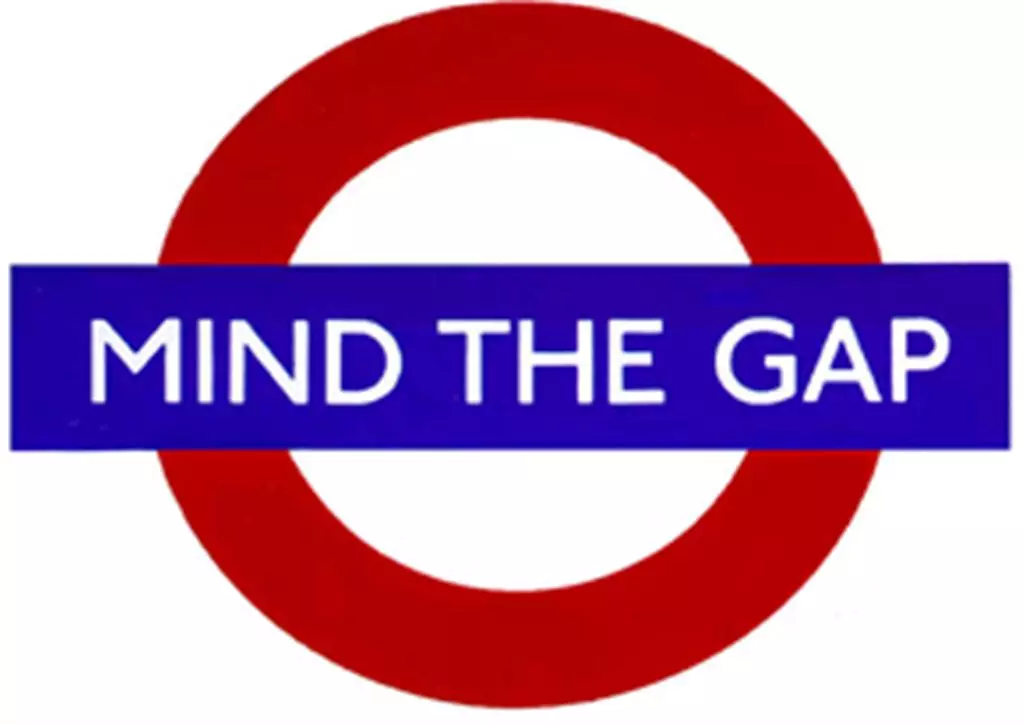


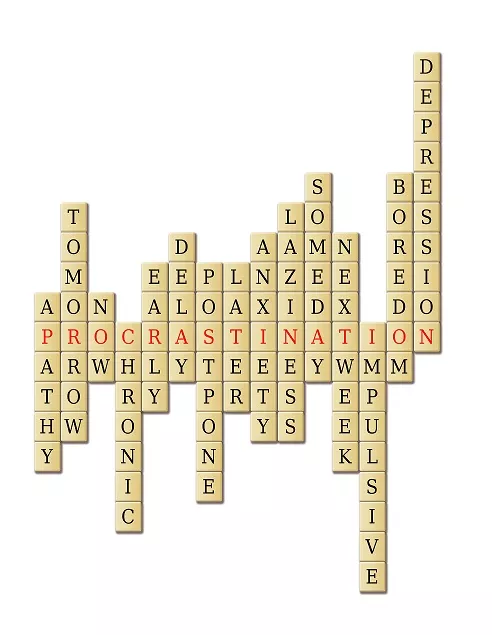
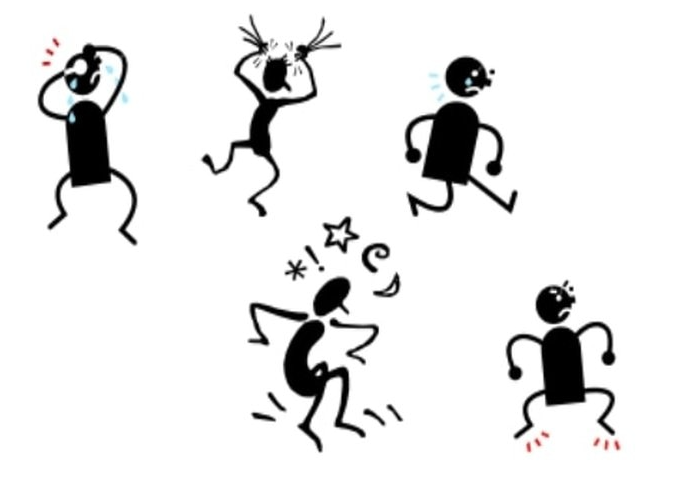

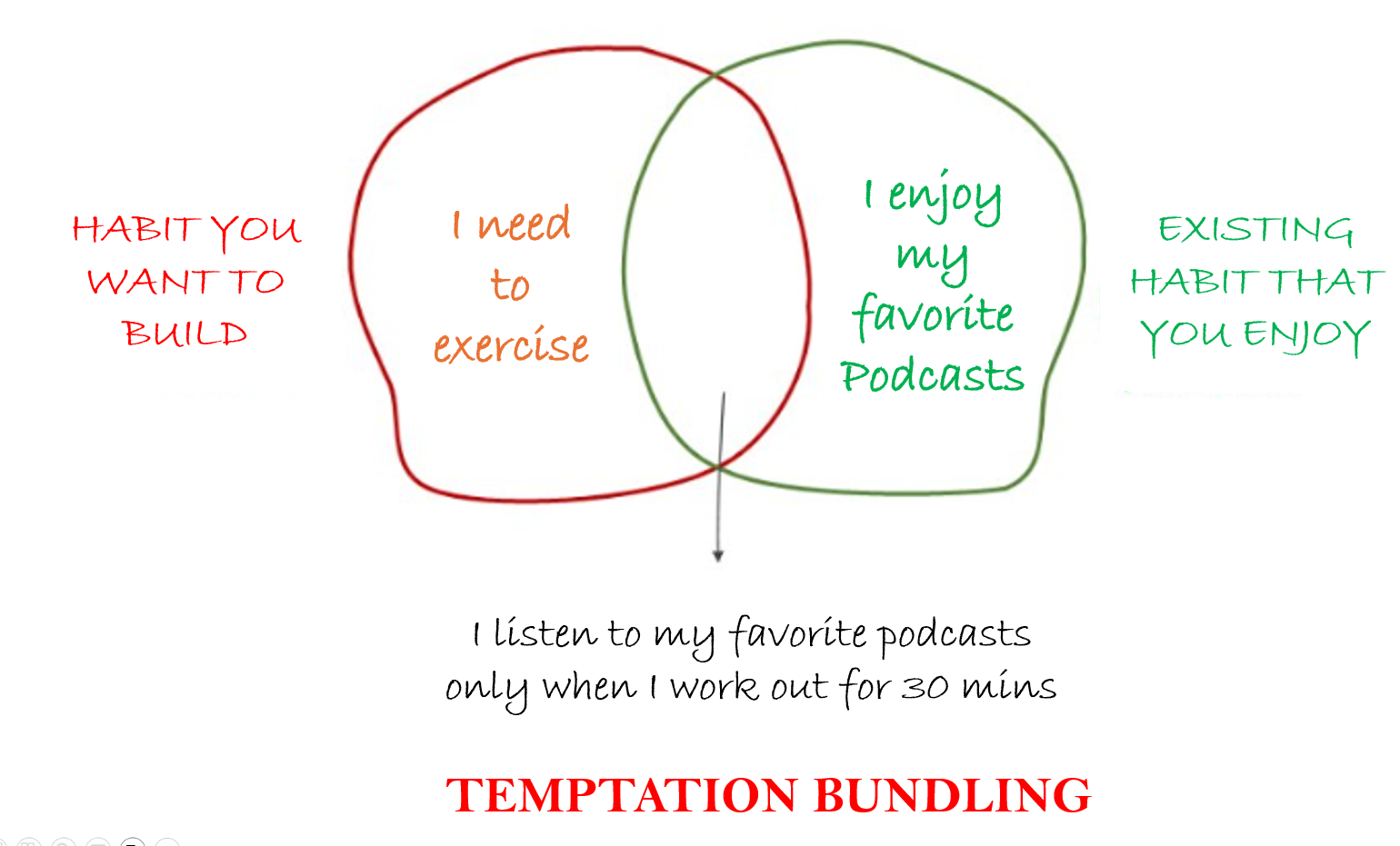

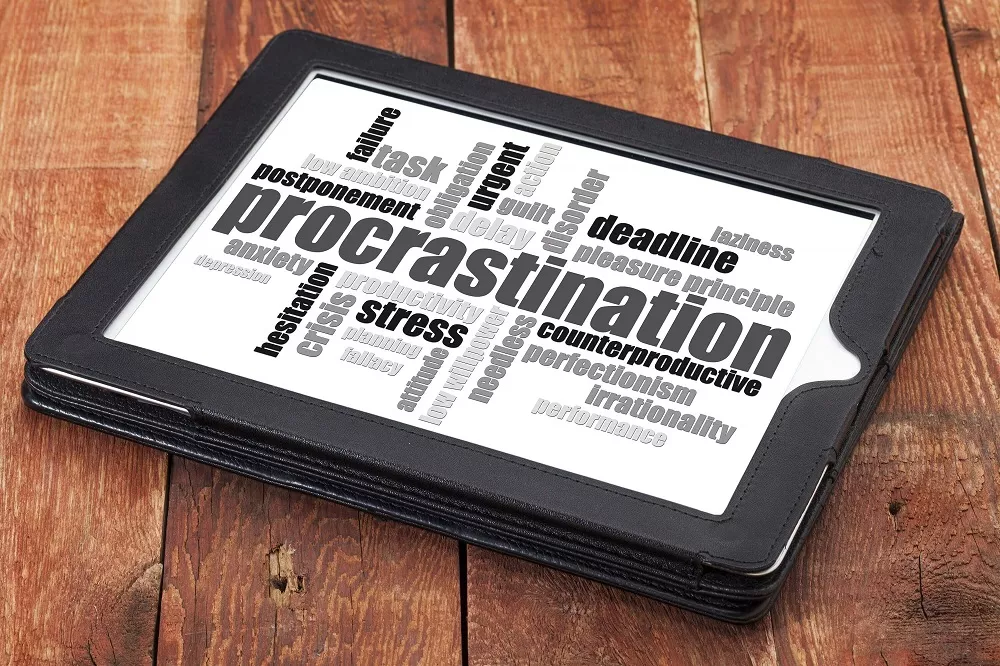

New! Comments
Have your say about what you just read! Leave me a comment in the box below.